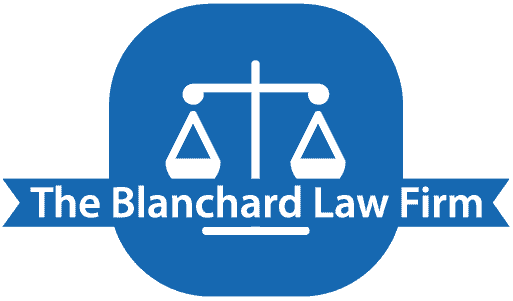
15 Apr Tax Season and Estate Planning: How to Maximize Your Savings
Every year, tax season brings a flurry of activity as individuals and families sift through documents, consult tax professionals, and look for every possible deduction or credit to reduce their tax liability. But while taxes often take center stage during this time, it’s also an ideal opportunity to revisit and refine your estate planning strategy.
When approached thoughtfully, combining tax and estate planning can unlock substantial savings and create a more secure financial future for you and your heirs.

Why Tax Season Is the Right Time to Review Your Estate Plan
Most people think of estate planning as reserved for the wealthy or elderly. In reality, estate planning is a valuable tool for anyone who owns property, has dependents, or wants a say in how their assets are distributed after their passing.
When integrated with tax planning, it becomes a powerful mechanism for minimizing estate taxes, reducing income taxes, and ensuring that assets are passed on as efficiently and cost-effectively as possible.
One of the most compelling reasons to align estate planning with tax season is the shared goal of reducing taxable income and preserving wealth. For instance, during tax season, you might discover that you’ve exceeded annual gift tax exclusions or failed to take advantage of charitable giving or trust contributions deductions.
The IRS gift tax exclusion allows individuals to gift up to $18,000 per recipient in 2024 without triggering gift taxes. By making these annual exclusion gifts, you can gradually reduce the size of your taxable estate while also helping loved ones in the present.
Leverage Charitable Giving and Trusts for Strategic Tax Benefits
Charitable giving is another area where tax and estate planning intersect beautifully. Donating to a qualified charity not only supports causes you care about, but it can also provide immediate income tax deductions and reduce your taxable estate.
Tools such as donor-advised funds (DAFs) or charitable remainder trusts (CRTs) allow you to make substantial contributions, benefit from tax deductions, and maintain some control over how your gifts are distributed over time.
Another tax-savvy estate planning tool is the irrevocable trust. These trusts allow you to remove assets from your estate, potentially reducing estate taxes and protecting wealth from creditors or legal judgments.
For example, irrevocable Life Insurance Trusts (ILITs) are commonly used to prevent life insurance payouts from being taxed as part of your estate. Similarly, Grantor Retained Annuity Trusts (GRATs) and Qualified Personal Residence Trusts (QPRTs) are practical tools for transferring appreciating assets to heirs at a reduced tax cost.
Consider Retirement and Investment Strategies with Estate Planning in Mind
Roth IRA conversions are another strategy to consider during tax season. Converting a traditional IRA to a Roth IRA may increase your taxable income now. Still, it allows your investments to grow tax-free and your heirs to receive distributions without paying income taxes.
This strategy is advantageous if you anticipate being in a higher tax bracket or want to create a tax-efficient inheritance. For detailed rules and income phase-outs, consult the IRS Roth IRA guidelines.
When reviewing your tax return, consider income-producing assets such as rental properties, dividends, or business interests. Are these structured to minimize capital gains tax for your heirs?
Have you considered using a family limited partnership (FLP) or a limited liability company (LLC) to centralize management and reduce estate taxes? These structures can offer discounts on valuation and help with smoother wealth transfer.
Tax season is a good time for married couples to revisit marital deduction planning. The unlimited marital deduction allows assets to be transferred to a surviving spouse free of estate tax. However, using a credit shelter trust (or bypass trust) can help ensure both spouses’ estate tax exemptions are used effectively, potentially doubling the amount that can be passed tax-free to heirs.
Act Now to Maximize Exemptions Before the Laws Change
Tax law is dynamic, and your estate planning should evolve with it. The federal estate tax exemption is historically high – $13.61 million per person in 2024 – but that’s set to sunset in 2026, possibly reverting to around $6 million per person. This scheduled reduction means that high-net-worth individuals should act now to lock in the benefits of the current exemption levels.
In addition to federal rules, some states impose state-level estate or inheritance taxes. These taxes often kick in at much lower thresholds, so even those below the federal exemption may face a state tax bill. A qualified estate attorney can help you navigate both federal and state implications.
Estate planning also includes preparing for incapacity. Durable powers of attorney, healthcare proxies, and living wills protect your wishes and reduce the financial burden on loved ones. While these documents don’t directly reduce taxes, they help preserve assets by preventing unnecessary court costs and confusion during emergencies.

Review Beneficiaries, Business Succession, and Digital Assets
As you organize your finances for tax season, take the opportunity to check beneficiary designations on life insurance, retirement plans, and transfer-on-death accounts. These designations override your will or trust and must align with your estate plan. Outdated beneficiaries can lead to unintended distributions – an easily avoidable but common mistake.
Business owners should also use this time to review succession plans. Are your heirs prepared to manage the business? Is there a buy-sell agreement in place? Tools like FLPs and trusts can help you retain control, transfer shares, and reduce estate tax burdens. The Small Business Administration (SBA) offers guidance on exit and succession planning strategies.
Don’t forget about your digital legacy. From cryptocurrency and domain names to cloud storage accounts and online subscriptions, digital assets are becoming more valuable and complex. The Uniform Fiduciary Access to Digital Assets Act (UFADAA) provides a legal framework for giving fiduciaries access to your online accounts—but only if you plan.
Working with a team of professionals, including a CPA, financial advisor, and estate attorney, ensures that your estate planning and tax strategies are aligned. Each professional brings a different perspective and can help ensure that you’re not missing valuable opportunities or exposing yourself to unnecessary liabilities.
How Do I Save If I Owe Taxes?
Owing taxes may feel like a financial setback, but it doesn’t mean you have to abandon your savings and estate planning goals. In fact, with the right approach, you can still make strategic moves that reduce future tax burdens and preserve wealth, even while paying off current obligations.
First, if you owe taxes, focus on minimizing penalties and interest by filing on time and exploring IRS payment options. The IRS offers payment plans allowing you to spread your tax liability over several months or even years, freeing up cash flow to maintain your financial goals.
Once you’ve structured a manageable repayment plan, look at ways to improve your tax efficiency in the future. For instance, maximizing your contributions to tax-advantaged accounts such as Health Savings Accounts (HSAs), 401(k)s, or IRAs can lower your current and future taxable income. Even small contributions can make a difference and demonstrate continued commitment to long-term planning.
If you support children or aging parents, claim all eligible tax credits, such as the Child Tax Credit or Credit for Other Dependents. These credits directly reduce your tax bill and can offer relief even if you owe money.
Finally, this is an ideal moment to look at estate planning through a new lens: protecting what you have. Even simple moves like updating your will, designating beneficiaries, and preparing power of attorney documents can have significant long-term financial benefits, even if you cannot make major gifts or trust contributions right now.
Remember, estate planning is not just for the wealthy—it’s for anyone who wants to avoid future chaos and ensure their assets are handled according to their wishes.
Final Thoughts
Ultimately, estate planning isn’t just about taxes or legal documents – it’s about peace of mind. It’s about knowing that your hard-earned wealth will be passed on according to your wishes, with minimal burden on those you leave behind. Tax season is more than just a time to file returns – it’s a perfect chance to reflect, plan, and take proactive steps toward financial security and a lasting legacy.
Whether it’s through strategic gifting, trust formation, charitable giving, or succession planning, integrating your estate planning with tax season is one of the most effective ways to maximize your savings and protect your future.

Sorry, the comment form is closed at this time.